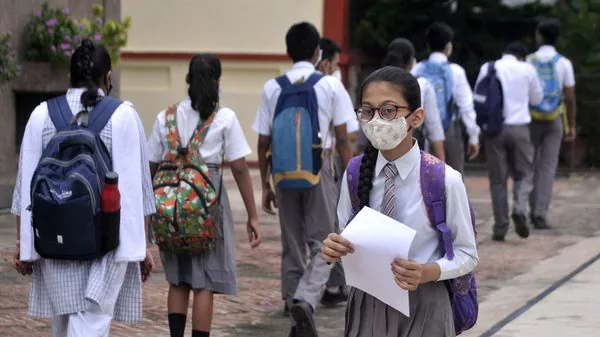The Directorate of Education (DOE), Delhi government, issued an order on Wednesday to conduct classes in a hybrid mode for students up to Class IX and XI. The decision follows the implementation of Stage-IV of the Graded Response Action Plan (GRAP) due to rising pollution levels in Delhi-NCR.
The directive applies to all government, government-aided, and unaided recognized private schools under the DOE, NDMC, MCD, and the Delhi Cantonment Board.
The official statement reads, “All Heads of Schools of Govt., Govt. Aided, Unaided Recognized Private Schools of DOE, NDMC, MCD, and Delhi Cantonment Board are directed to conduct classes in schools for children up to Class IX & XI in a ‘Hybrid Mode,’ i.e., both in physical and online mode.”
Meanwhile, Delhi continues to face a cold wave, further exacerbating the already severe air pollution levels. The air quality in the national capital has dropped into the ‘very poor’ category, with an AQI of 344 recorded on Wednesday, according to the Central Pollution Control Board (CPCB).
CPCB data revealed worsening conditions at various locations in Delhi, including:
- Lodhi Road: AQI 287 (IITM) and 291 (IMD)
- Mandir Marg: AQI 378
- North Campus, DU: AQI 382
- Okhla Phase-2: AQI 380
- Vivek Vihar: AQI 414 (highest recorded, indicating severe pollution levels)
An AQI range of:
- 0–50 is considered ‘good’
- 51–100 ‘satisfactory’
- 101–200 ‘moderate’
- 201–300 ‘poor’
- 301–400 ‘very poor’
- 401–500 ‘severe’
On January 12, the Commission for Air Quality Management (CAQM) had revoked Stage-III measures of GRAP after a slight improvement in air quality. However, with pollution levels worsening again, stricter measures, including hybrid learning modes for schools, have been re-implemented.


